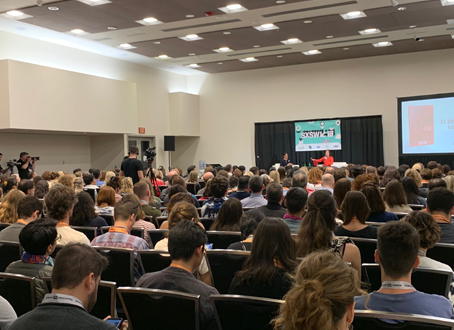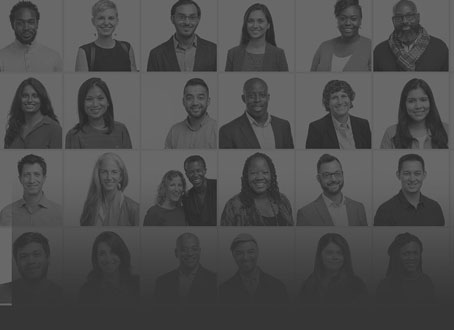The open source community has no shortage of projects devoted to social change and improving lives. Pick a need, and there is likely an open source solution for it, but it is often difficult for projects that have a social good application to get the notice they deserve. This is a shame as the collaborative and transparent nature of open source is a force-multiplier for changemaking efforts and when properly supported, open source software can spark innovation, accelerate social good. Therefore, here are five open source projects that we think show the potential for open source to make a real impact in the non-profit world.
Givesource
The creators of Givesource had a vision that there could be a cheaper and better fundraising platform for nonprofits. Through a partnership between Firespring, a Lincoln, NE-based marketing and software company, and the Jeffrey S. Raikes School of Computer Science and Management, the team built a fundraising tool to power the Lincoln Community Foundation’s Giving Day but with a broader vision of creating a platform that out-performed anything on the market at a far-reduced operating cost. The result is a platform that empowered the Lincoln Community Foundation to set a new record for giving, slashed their processing and platform fees, and attracted the attention of local media. Anyone seeking a best-in-class tool for fundraising can tap into the power of Givesource as it was designed from the outset to be open sourced.
Learn more at Givesource.com
Tidepool
Seeing firsthand how little interoperability there was between diabetes devices and their data, Tidepool founder Howard Look set out to create an open source toolkit that allowed users, both individuals with diabetes and medical professionals, to better combine and analyze data from the multiple devices diabetes patients must use to manage their health. Users of Tidepool’s software can explore their data on a personalized dashboard and easily share that data with their doctor, ending the need for patients to physically go to their doctor’s office to share their data. Similarly, researchers using Tidepool’s platform can share their data in real-time with the research team.
Learn more at Tidepool.org
Code for America
Code for America empowers citizen developers to help their communities using their talents. Salt Lake County was struggling with a solution to notify people for court appearances or for court-ordered treatments. The Code for America Fellowship group approached the problem by starting with extensive research and a user-centered design process which yielded evidence to disprove the commonly-held notion that most individuals simply skip or forget their court dates and other appointments. Instead, their research showed a wide range of reasons individuals missed their dates and there was a need for a better tool for communicating with their case officers at any time. Therefore, Code for America’s team built ClientComm, an open source platform that facilitates easier communication between case officers and their clients by giving the case officer’s a sophisticated management platform to track their clients and gives end-users a simple text-message-based platform that allows them to contact their case officer immediately in any situation.
Learn more at ClientComm.org
Mifos
The Grameen Foundation found a key barrier to their goal of helping the 2 billion poor and unbanked worldwide was the lack of good financial services platforms. To address this problem, they created Mifos, an open source financial services suite that institutions may use to easily offer low or no cost digital banking solutions to their customers. As a totally open platform, banks may use and expand upon the features in Mifos to best serve their customers all while being part of a community of users of the tool who share and collaborate on features. Mifos’s mission now is to spread the use of this platform across the world, starting with developing regions where there is little to no access to banking.
Learn more at Mifos.org
Open Agriculture Initiative
An initiative of the MIT Media Lab, the Open Agriculture Initiative’s works to create healthier, more engaging and more inventive future food systems and drive an ecosystem of open source tools to support transparency and innovation across their work. Some of the many open source projects they support include a set of tools for using technology to optimize conditions for growth. These applications include the Tree Computer for tree growth, the Personal Food Computer for tabletop-sized environments, and the Food Server which manages large-scale hydroponic installations. In addition, the Open Agriculture Initiative supports research to incorporate computer vision and machine learning into their projects to enhance their growth management tools.
Learn more at media.mit.edu/groups/open-agriculture-openag/overview
Whether it is reducing the cost of fundraising for non-profits, improving the lives of patients, making government systems more friendly for citizens or supporting teams that are focusing on the food of the future, each of these projects highlight the benefits that can come from the wide embrace of open source by the non-profit and philanthropic sectors. We tip our hats to each of these organizations who are ensuring that their work is available to all—embodying the Case Foundation’s vision that open source is a form of philanthropy. We look forward to showcasing further examples of open source work being done by individuals, nonprofits, and companies. If you have or know of a project that you believe is fearlessly trying to make change in a community or the world, let us know at opensource@casefoundatdev.wpenginepowered.com/.





